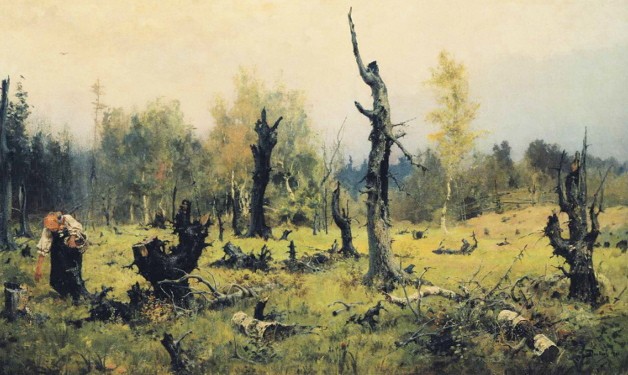Work began in mid-2011, and the total cost came to $200 million. No, it’s not a new, state-of-the-art hospital; it’s this year’s summer zombie apocalypse movie. And two hours from now, you may remember that you resolved to spend more time at the beach this summer, and that your sunny days are numbered.
What is the draw to zombie movies, despite their lack of originality, intrigue, or comeliness? The only answer I can propose is that they offer us a lesson in who we are. The genre and its most recent iteration, World War Z, show us, in a reductio ad absurdum, the ultimate consequences of our current culture of death.
World War Z takes place in an apocalyptic society where all of civilization is burning and being physically destroyed. The social aspects go up in flames as well: family life is interrupted and physically pulled apart. Essentials like work, play, education, and producing food are abandoned, and then forgotten. God, or even reference to anything spiritual, is nowhere to be found. An utterly barren and scarred landscape results, literally and symbolically.
The zombie is the embodiment of that landscape—the putrid remains of a person whose meaning, fruitfulness, and very life have departed; the only power left to it is to spread the destruction that it embodies by slavishly following the craving for flesh. We are drawn to zombie movies because our culture has become “zombified”—a culture of death.
The death wrought by the zombies reminds me of a passage from the psalms: “Will those who do evil never understand? They eat up my people as if they were eating bread; and they never think to pray to God” (Ps 14:4). Despite all our technological advances, there are still things we cannot control. Humanity on its own lies helpless in the face of the sweeping zombie apocalypse: one can run or hide, but there is no way to overcome the zombies. Attempts to stop the zombie violence with more violence—Hollywood’s specialty of knives, guns, and explosions—can only stall for time; they cannot offer a solution.
Ultimately, we realize that there is no escape from the cycle of sin, evil, and death by human means alone. As believers, we know that the only solution lies out of our hands. Jesus said,
Behold, the hour is coming and has arrived when each of you will be scattered to his own home and you will leave me alone. But I am not alone, because the Father is with me. I have told you this so that you might have peace in me. In the world you will have tribulation, but take courage, for I have conquered the world. (Jn 16:32–33)
In His incarnation, Jesus has carved a path to life that we can follow all the way to unity with the Father.
If we leave Jesus’ side and walk alone, we will make no progress toward that goal. World War Z has been criticized for its total lack of development, and I would argue that the solutions it proposes—utilitarianism, martial law, and the deification of nature or science—are dehumanizing precisely because they cause man to deny his religious nature, a nature that is open to accepting the movement toward salvation offered by the Gospel.
On the contrary, both World War Z and contemporary society understand us to be a frenzied collection of insects scrambling on top of each other to satisfy our flesh-craving. The film sweeps along as one breathlessly busy conflict from start to finish, rising only with the intensity and scale of the carnage and the explosions. It establishes a rat-race for us and offers no new destinations, only larger rats and fancier mazes.
With a hopeless leitmotif of death and despair, zombie apocalypse movies have been recurring with futility year after year, but the one army of living dead that audiences are truly waiting for has yet to come to the silver screen. It’s already been written down, though, in the book of Ezekiel. There, the prophet, following God’s direction, stands above a vast valley of dried bones of the long-dead warriors of all of Israel. With utter faith in God and the unlimited power of His Word, Ezekiel prophesies. God’s Word gives them flesh and His breath gives them life, and they glorify Him with the gifts they have received:
I prophesied as he commanded me, and the breath entered them; they came to life and stood on their feet, a vast army. He said to me: Son of man, these bones are the whole house of Israel! They are saying, ‘Our bones are dried up, our hope is lost, and we are cut off.’ Therefore, prophesy and say to them: Thus says the Lord God: Look! I am going to open your graves . . . I will put my spirit in you that you may come to life, and I will settle you in your land. Then you shall know that I am the Lord. I have spoken; I will do it. (Ez 37:10-14)
For all its intensity and supposed excitement, a zombie apocalypse does not offer any real action toward a lasting solution. In the end, “if the Lord does not watch over the city, in vain do the watchmen keep vigil” (Ps 127:1), for, as the prophet Ezekiel tells us, only the breath of God can renew us.
✠
Image: Vasily Polenov, The Burnt Forest







